INTERNATIONAL WEBINAR
INSTITUTIONAL FRAMEWORKS AND PUBLIC POLICIES FOR RESILIENT SOCIETIES
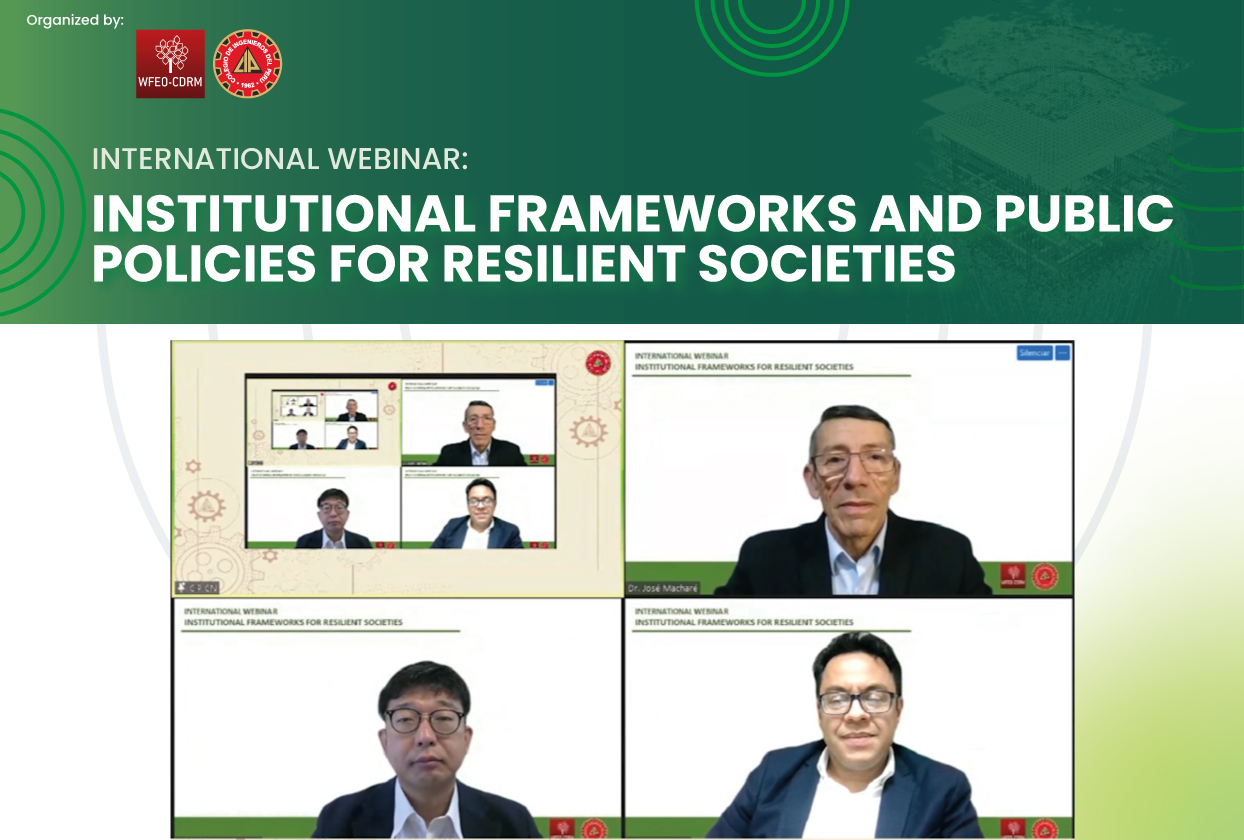
INTERNATIONAL WEBINAR
INSTITUTIONAL FRAMEWORKS AND PUBLIC POLICIES FOR RESILIENT SOCIETIES
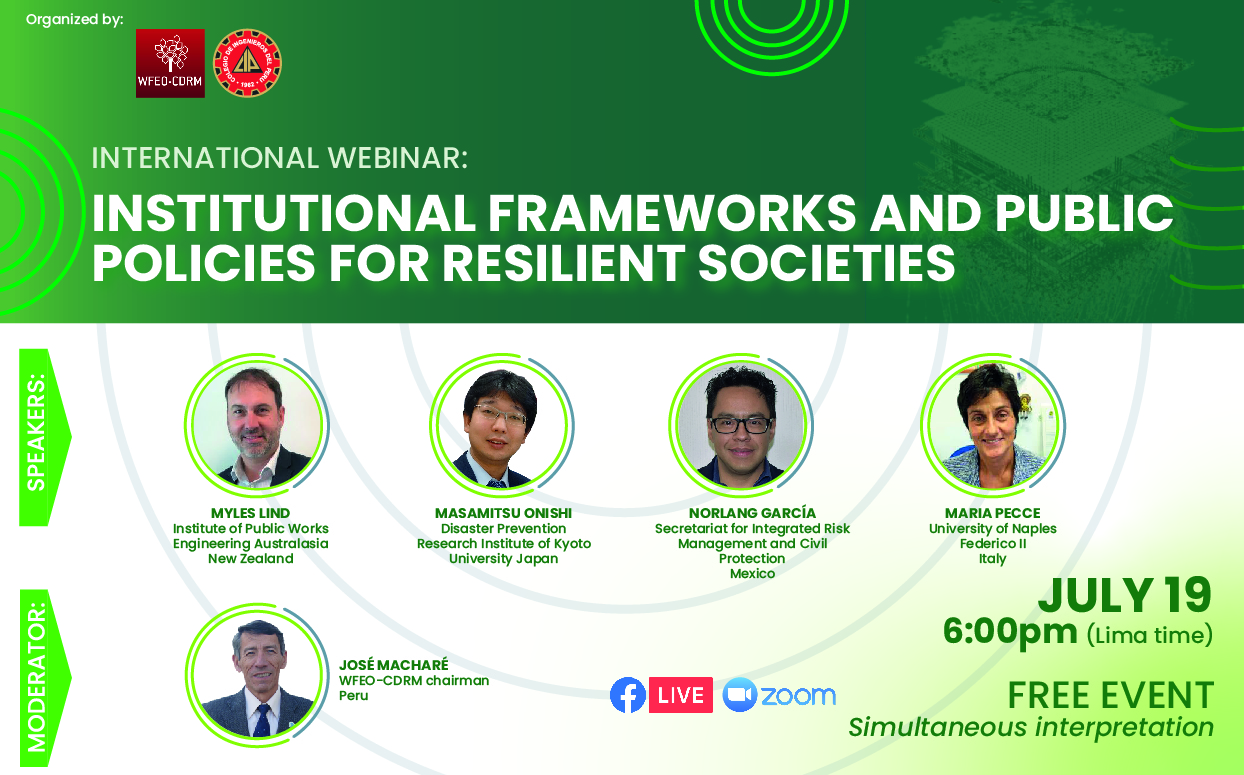
The Committee on Disaster Risk Management of the World Federation of Engineering Organizations (WFEO) and the Peruvian Engineers Association (CIP), are organizing this important event to be held on Tuesday 19 July at 6:00pm Lima, Peru time.
In the process of building resilience, countries design new intra-and-inter institutional relationships or improve the existing ones. Often this action has followed a shocking event, whether or not it caused disaster.
This webinar is intended to present, compare, and discuss on specific institutional arrangements set by three (four) governments seeking for better performances in risk reduction. Were they triggered by a hazardous event? At what government level were the improvements made? Are there assessments of their functionality or they have been tested by real events? Are they considered cost-effective measures? These are some of the questions that arise on the subject.
The aim is to distill best practices in policymaking, based on science and engineering, and offer them as examples to countries looking to strengthen their DRM systems.
PROGRAMME
| Welcome and introduction | Myles Lind – WFEO-CDRM working group leader
|
| Case of studies | Overview of national resilience policy of Japan and future challenges
Masamitsu Onishi – Disaster Prevention Research Institute of Kyoto University, Japan
|
| Public Policies for Resilience Building in Mexico City
Norlang García – Secretariat for Integrated Risk Management and Civil Protection, Mexico
|
|
| Coordinated Incident Response Management in Aotearoa New Zealand
Myles Lind – Institute of Public Works Engineering Australasia, New Zealand
|
|
| Seismic risk management and emergency preparedness in Italy
Maria Pecce – University of Naples Federico II, Italy
|
|
| Round table
|
Moderator |
| Key messages | Myles Lind – WFEO-CDRM working group leader
|
| Closing | José Macharé Ordoñez –WFEO-CDRM chairman
|
Our Speakers
 |
|
Myles Lind is a Fellow of Engineering New Zealand is the current President of the Institute of Public Works Engineers Australasia (IPWEA) in Sydney, Australia. Mr Lind holds an honors degree in Mechanical Engineering from the University of Canterbury (New Zealand) and has a strong interest in public infrastructure management and risk management. Mr Lind is the Head of Asset Management at Auckland Transport in Auckland, New Zealand. Mr Lind serves WFEO as a representative of the International Federation of Municipal Engineers (IFME). |
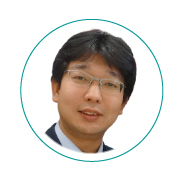 |
|
Masamitsu Onishi is an associate professor at Disaster Prevention Research Institute (DPRI) of Kyoto University. After completing his master’s and doctoral studies at the Graduate School of Engineering, Kyoto University, he became an assistant professor at the Department of Urban and Social Engineering, Graduate School of Engineering, Kyoto University in 2005. He specializes in civil engineering and is particularly interested in governance issues related to infrastructure provision system, including construction management and PPPs. Since joining the DPRI in 2016, he has been researching community governance for improving disaster resilience, and has been involved in action research, participating in real community fields. |
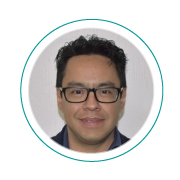 |
|
Carlien Bou-chedid is a Structural/Earthquake Engineer and a member of the Committee on Disaster Risk Management of World Federation of Engineering Organisations. She is a Past President of the Ghana Institution of Engineering (2017-2018) and currently the President, Federation of African Engineering Organisations (2021-2022). She is also a member of the Board of Direction, EERI (2019 to date). In 2019, Carlien was Chair of the National Earthquake Committee in Ghana, which produced a framework for “Refocusing Ghana’s Earthquake Preparedness and Response”. |
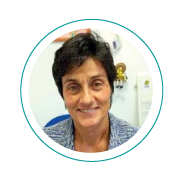 |
|
Marisa Pecce is full professor of Structural Engineering at the Department of Structures for Engineering and Architecture of University of Naples Federico II (Italy). She is a Fib (FIB | The International Federation for Structural Concrete) fellow since March 2021 as well as Member of WGs of CNR (National Council of Research in Italy), Italian Higher Council for Public Works for developing Guidelines. Currently involved in different research activities within Reluis (Network of the University Laboratories of Seismic Engineering) and she is the President of the sub-commission UNI – SC4 (Steel concrete composite constructions). Marisa is author of more than 200 papers about theoretical-experimental research in various fields of structures and seismic engineering. |